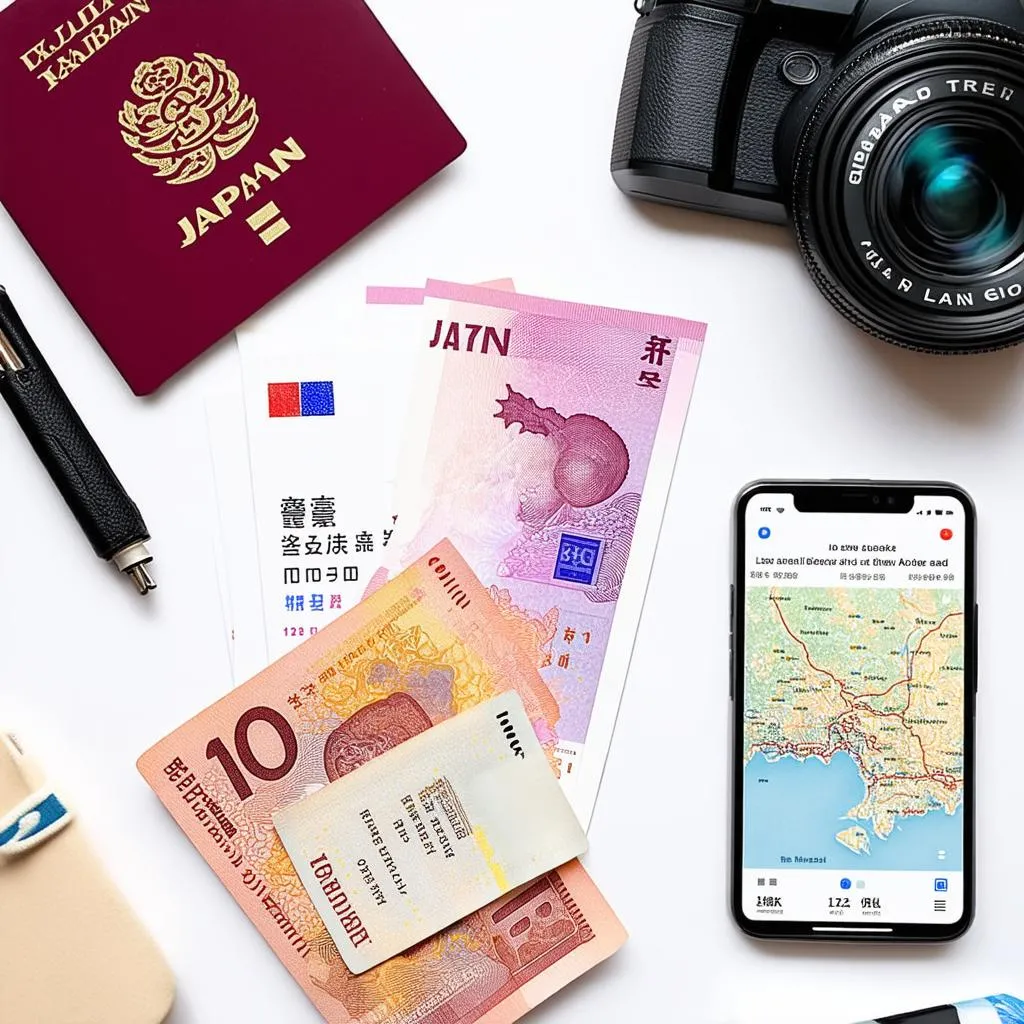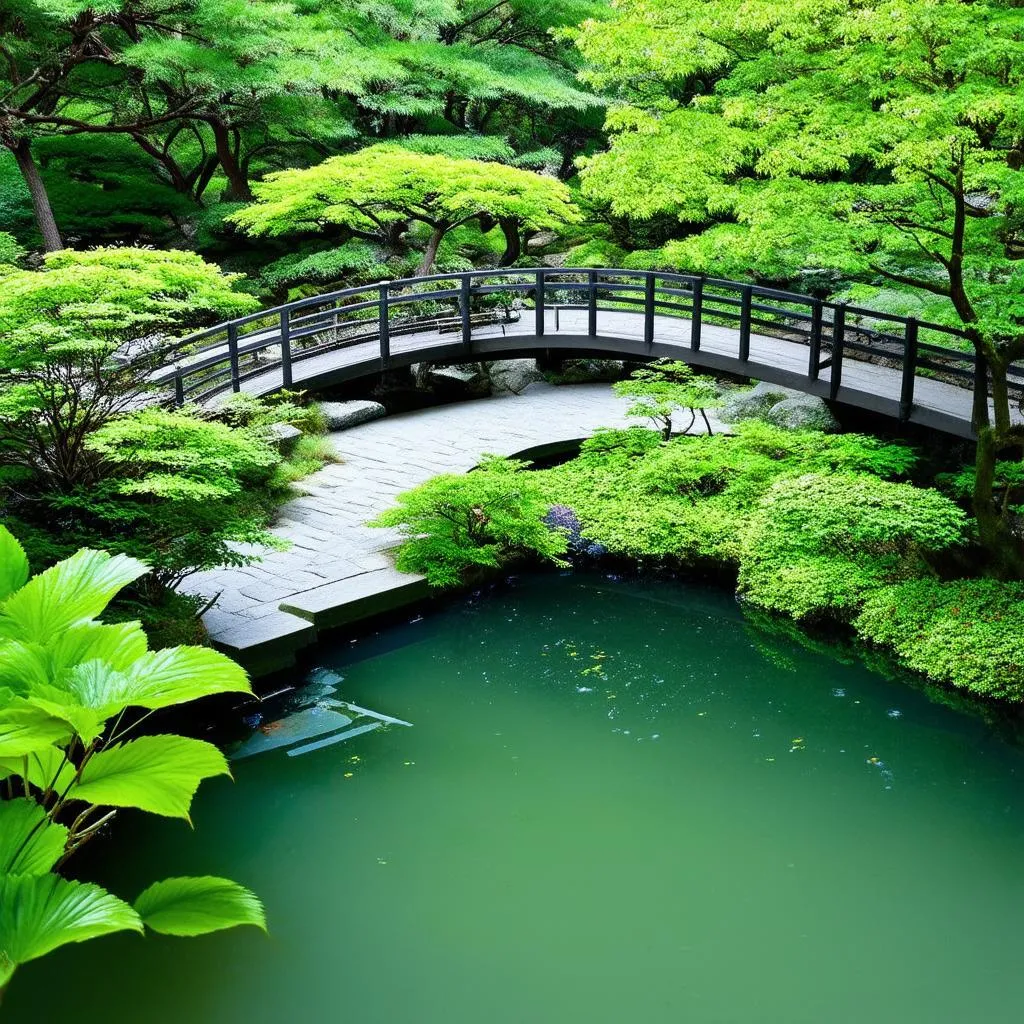“The journey of a thousand miles begins with a single step.” This Lao Tzu quote rings especially true when planning a trip to Japan, a country that beautifully blends ancient traditions with futuristic marvels. Whether you’re drawn to the serenity of Mount Fuji, the bustling energy of Tokyo, or the historical charm of Kyoto, this guide will equip you with everything you need to know before embarking on your Japanese adventure.
Essential Preparations for Your Japan Trip
Visa Requirements
Before you pack your bags and book your flights, it’s crucial to determine if you need a visa. Citizens of many countries, including the US, Canada, and most European nations, can enjoy visa-free entry for tourism purposes for a specific duration. However, it’s always best to check the latest visa regulations based on your nationality to avoid any last-minute surprises. For a comprehensive understanding of visa requirements for Japan, you can refer to this informative article: Do I Need a Travel Visa for Japan?.
Passport Validity
Ensure your passport is valid for at least six months beyond your intended stay in Japan. It’s always a good idea to have ample validity to avoid any potential issues.
Flights and Accommodation
Japan offers a wide range of flight options, from budget airlines to full-service carriers. Booking in advance, especially during peak seasons like spring (cherry blossom season) and autumn (fall foliage), is highly recommended for the best deals. Similarly, securing your accommodation early on, whether it’s a traditional ryokan, a modern hotel, or a cozy Airbnb, will provide peace of mind and prevent last-minute scrambles.
Currency Exchange
The currency of Japan is the Japanese Yen (JPY). While credit cards are widely accepted in major cities and establishments, carrying some local currency for smaller shops, restaurants, and transportation is advisable. Exchanging currency before your trip or withdrawing from ATMs upon arrival are common options.
Travel Insurance
Investing in comprehensive travel insurance is non-negotiable. It protects you from unforeseen events like medical emergencies, flight cancellations, lost luggage, and other travel-related mishaps. Ensure your insurance covers activities you plan to engage in, such as hiking, skiing, or participating in adventure sports.
 Japan Travel Essentials
Japan Travel Essentials
Planning Your Itinerary: Must-Visit Destinations
Japan offers a diverse tapestry of experiences, from ancient temples and serene gardens to modern metropolises and technological wonders. Here are some must-visit destinations to consider:
Tokyo: The Vibrant Capital
Tokyo is a city of contrasts, where neon-lit skyscrapers coexist with tranquil shrines and traditional tea houses. Explore the bustling Shibuya crossing, immerse yourself in the electric atmosphere of Akihabara (Tokyo’s electronics district), and find serenity at the Meiji Jingu Shrine, a peaceful oasis in the heart of the city.
Kyoto: The Cultural Heart
Kyoto, the former imperial capital, is a treasure trove of history and tradition. Visit the iconic Fushimi Inari Shrine with its thousands of vermilion torii gates, marvel at the golden Kinkaku-ji (Golden Pavilion), and experience the serenity of the Arashiyama bamboo grove.
Osaka: The Nation’s Kitchen
Known for its delectable street food and vibrant nightlife, Osaka is a food lover’s paradise. Indulge in takoyaki (octopus balls), okonomiyaki (savory pancakes), and kushikatsu (deep-fried skewers). Explore the Dotonbori district with its dazzling neon lights and entertainment options.
Other Notable Destinations
Beyond the major cities, Japan offers a plethora of stunning landscapes and cultural gems. Hike the iconic Mount Fuji, relax in the hot springs of Hakone, explore the picturesque Japanese Alps, or discover the historical treasures of Hiroshima and Nagasaki.
Navigating Japanese Culture and Etiquette
Respectful Communication
While the Japanese are incredibly welcoming and hospitable, understanding some basic etiquette goes a long way in showing respect. Bowing is the customary greeting, and the depth of the bow reflects the level of formality. Avoid loud conversations in public places, and be mindful of others when using your phone.
Dining Customs
Slurping noodles is considered a compliment to the chef, indicating you’re enjoying your meal. It’s customary to say “itadakimasu” before eating and “gochisosama deshita” after finishing your meal to express gratitude. Tipping is not customary in Japan.
Transportation Etiquette
Japan boasts an efficient and extensive public transportation system. When using trains or buses, it’s considered rude to talk loudly on the phone or eat and drink. Queueing in an orderly manner is also highly valued.
Budgeting for Your Japan Trip
The cost of traveling in Japan can vary greatly depending on your travel style and preferences. Here’s a general breakdown:
Accommodation:
- Budget: $30-$70 per night (hostels, capsule hotels)
- Mid-range: $70-$150 per night (business hotels, ryokans)
- Luxury: $150+ per night (high-end hotels, traditional ryokans)
Food:
- Budget: $20-$30 per day (street food, convenience stores)
- Mid-range: $30-$50 per day (local restaurants, set meals)
- Fine dining: $50+ per meal
Transportation:
- Japan Rail Pass (for extensive travel): $250-$500 (7-day pass)
- Local transportation (subway, bus): $2-$5 per ride
Activities:
- Temple and garden entrance fees: $3-$10
- Museums and attractions: $5-$20
Example Budget (7-day trip):
- Budget traveler: $1,000-$1,500
- Mid-range traveler: $2,000-$3,000
- Luxury traveler: $4,000+
Frequently Asked Questions (FAQs)
What is the best time to visit Japan?
Japan offers something unique in every season. Spring (March-May) brings cherry blossoms, autumn (September-November) showcases vibrant foliage, summer (June-August) is ideal for festivals and outdoor activities, and winter (December-February) offers skiing and snowboarding opportunities.
Do I need to speak Japanese to travel in Japan?
While English is not widely spoken outside major cities, many signs and announcements are in English. Using translation apps, phrasebooks, or learning some basic Japanese phrases can be helpful.
Is Japan safe for travelers?
Japan consistently ranks as one of the safest countries in the world. However, it’s always wise to exercise caution, safeguard your belongings, and be aware of your surroundings.
What are some cultural faux pas to avoid in Japan?
- Don’t tip service workers.
- Avoid blowing your nose in public.
- Take off your shoes when entering homes, temples, and some traditional restaurants.
- Avoid pointing with your chopsticks.
 Serene Japanese Garden
Serene Japanese Garden
Embrace the Magic of Japan with travelcar.edu.vn
Planning a trip to Japan is an exciting endeavor, and being well-prepared ensures a smooth and memorable experience. By following this comprehensive guide, you’ll be well-equipped to navigate the cultural nuances, explore the iconic landmarks, and create unforgettable memories in the Land of the Rising Sun.
For more travel tips, destination guides, and insightful articles, visit travelcar.edu.vn.
Have you ever dreamt of wandering through the enchanting Arashiyama bamboo grove in Kyoto? Share your thoughts and travel aspirations in the comments below!
